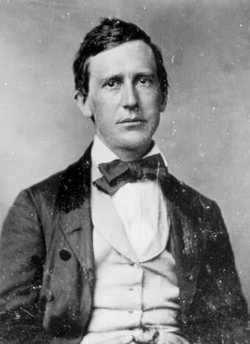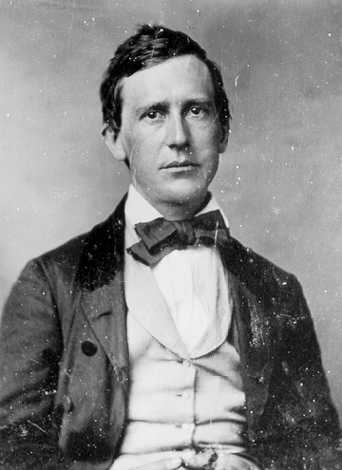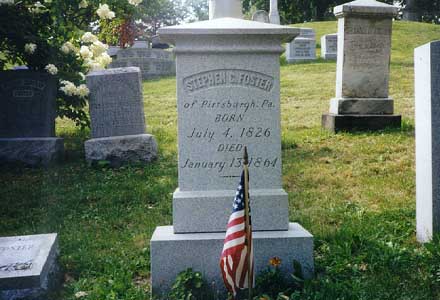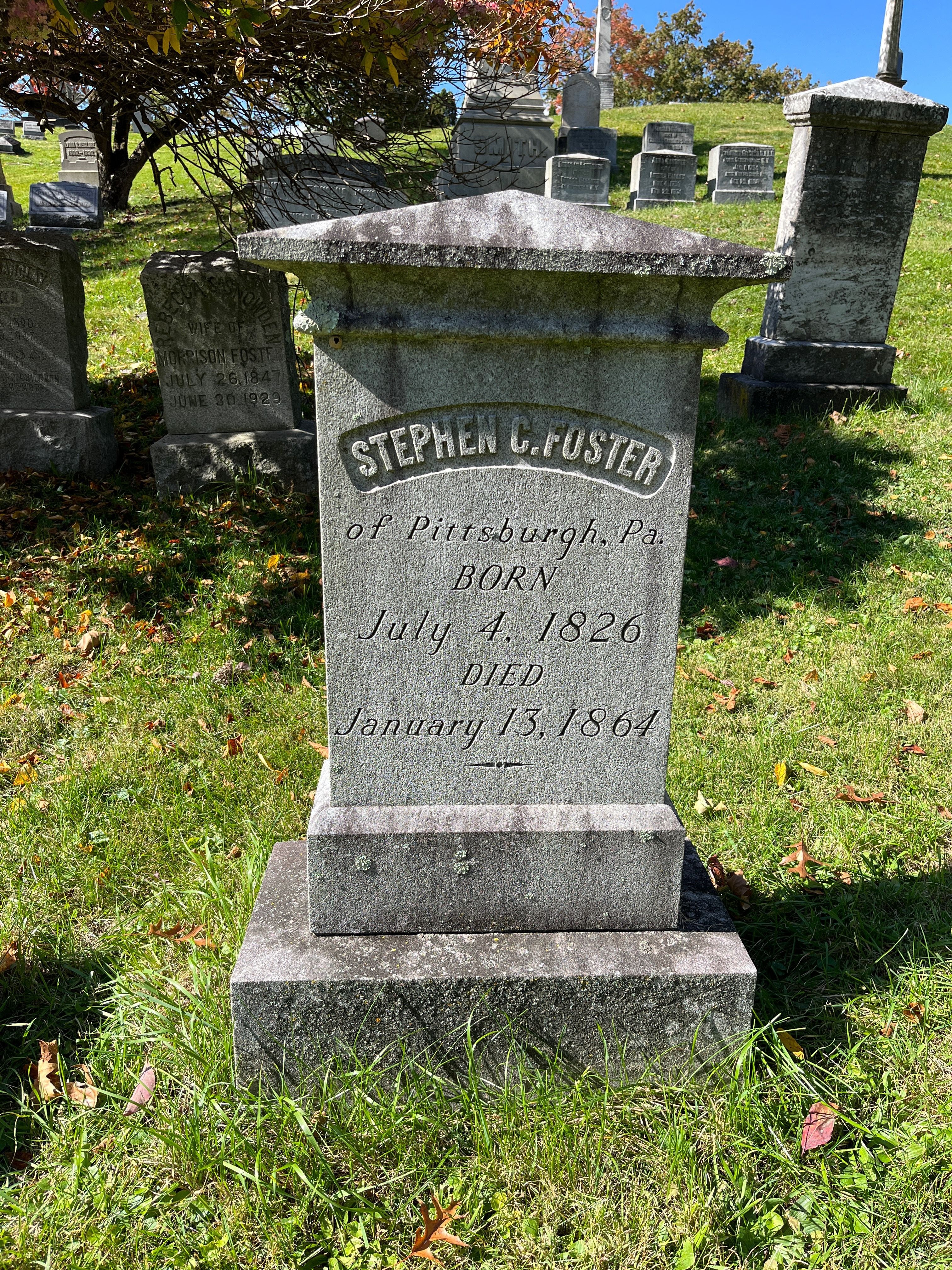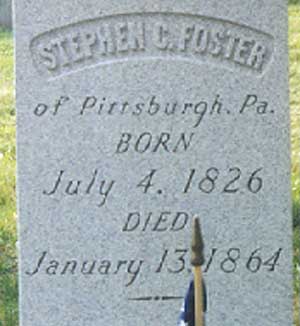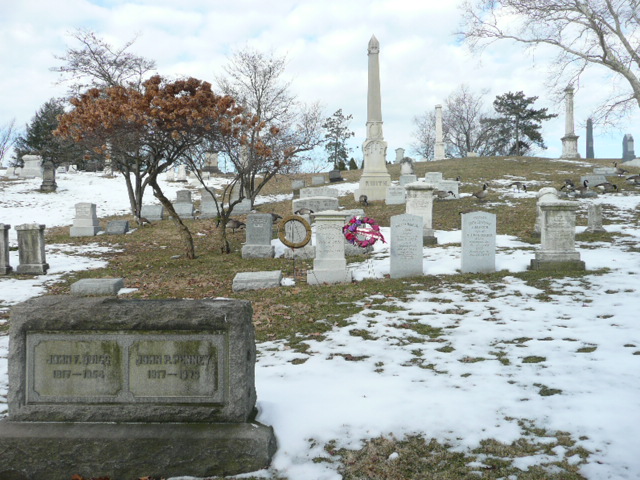Foster wrote in the minstrel tradition of the time, in which white entertainers would blacken their faces to parody slaves, but he never stooped to racism, and his songs overcame their origins with their sincerity, empathy, and beguiling melodies. He produced over 200 songs, and wrote the lyrics for most of them.
He was born in Lawrenceville (now part of Pittsburgh), Pennsylvania. A self-taught musician, he learned to play the clarinet by ear and published his first song, "Open Thy Lattice, Love," when he was 18. In 1846, he moved to Cincinnati, Ohio, to work as a bookkeeper for his brother, and brought out two collections of tunes, "Songs of the Sable Harmonists" (1848) and "Foster's Ethiopian Melodies" (1849). He returned to Pittsburgh in 1850 and signed a long-term contract to write songs for the Christy Minstrels company.
Foster was a poor businessman. He sold his songs for little money and saw none of the huge profits sheet music publishers made from his work. In 1860, he went to New York City, where he spent his last years struggling against increasing poverty, illness, and alcoholism. Foster died at 37, of head injuries from an accidental fall in his Bowery hotel room. At the time of his death, he possessed exactly 38 cents. Out of respect for the composer, a transport company shipped his body back to Pittsburgh for free.
Foster's songs are so deeply rooted in American folk tradition, they are often viewed as folk music themselves. When composer Charles Ives, that homespun eccentric nationalist, wanted a real American flavor in his music, he quoted Foster. His art even found its way into 20th Century pop culture. "Camptown Races" is the tune ubiquitously hummed by the rooster Foghorn Leghorn in Warner Bros. cartoons, and was memorably parodied in the comic western "Blazing Saddles" (1974). The 1960's TV comedy "I Dream of Jeannie" derived its title from a Foster song. For all its quaintness and sentimentality, Foster's music remains a living part of America's cultural heritage.
The Stephen Collins Foster Memorial, dedicated in 1937, is a performing arts center and museum which houses the Stephen Foster Archives at the University of Pittsburgh in Pittsburgh, Pennsylvania. The gothic revival, Indiana limestone structure houses two theaters that serve as performance spaces for the university's Department of Theatre Arts. The left wing of the building houses the Stephen Foster Memorial Museum which contains the university's Stephen Foster archives, including manuscripts, copies of over 200 of his musical compositions, various memorabilia, and several musical instruments, including one of Foster's pianos.
Foster wrote in the minstrel tradition of the time, in which white entertainers would blacken their faces to parody slaves, but he never stooped to racism, and his songs overcame their origins with their sincerity, empathy, and beguiling melodies. He produced over 200 songs, and wrote the lyrics for most of them.
He was born in Lawrenceville (now part of Pittsburgh), Pennsylvania. A self-taught musician, he learned to play the clarinet by ear and published his first song, "Open Thy Lattice, Love," when he was 18. In 1846, he moved to Cincinnati, Ohio, to work as a bookkeeper for his brother, and brought out two collections of tunes, "Songs of the Sable Harmonists" (1848) and "Foster's Ethiopian Melodies" (1849). He returned to Pittsburgh in 1850 and signed a long-term contract to write songs for the Christy Minstrels company.
Foster was a poor businessman. He sold his songs for little money and saw none of the huge profits sheet music publishers made from his work. In 1860, he went to New York City, where he spent his last years struggling against increasing poverty, illness, and alcoholism. Foster died at 37, of head injuries from an accidental fall in his Bowery hotel room. At the time of his death, he possessed exactly 38 cents. Out of respect for the composer, a transport company shipped his body back to Pittsburgh for free.
Foster's songs are so deeply rooted in American folk tradition, they are often viewed as folk music themselves. When composer Charles Ives, that homespun eccentric nationalist, wanted a real American flavor in his music, he quoted Foster. His art even found its way into 20th Century pop culture. "Camptown Races" is the tune ubiquitously hummed by the rooster Foghorn Leghorn in Warner Bros. cartoons, and was memorably parodied in the comic western "Blazing Saddles" (1974). The 1960's TV comedy "I Dream of Jeannie" derived its title from a Foster song. For all its quaintness and sentimentality, Foster's music remains a living part of America's cultural heritage.
The Stephen Collins Foster Memorial, dedicated in 1937, is a performing arts center and museum which houses the Stephen Foster Archives at the University of Pittsburgh in Pittsburgh, Pennsylvania. The gothic revival, Indiana limestone structure houses two theaters that serve as performance spaces for the university's Department of Theatre Arts. The left wing of the building houses the Stephen Foster Memorial Museum which contains the university's Stephen Foster archives, including manuscripts, copies of over 200 of his musical compositions, various memorabilia, and several musical instruments, including one of Foster's pianos.
Bio by: Bobb Edwards
Family Members
Advertisement
See more Foster memorials in:
Records on Ancestry
Advertisement
